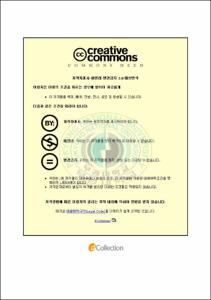교사평가제도에 관한 중학교 교사들의 인식
- Alternative Title
- MIDDLE SCHOOL TEACHERS' PERCEPTION OF TEACHER EVALUATION SYSTEM
- Abstract
- 본 연구는 2007년 교사평가제도 시범 운영에 참여한 부산광역시 중학교 교사들의 인식을 조사?분석해 봄으로써 향후 제도의 효율적 운영에 도움이 될 시사점을 얻기 위한 목적으로 수행되었으며, 연구문제는 다음과 같다.
1) 교사평가제도의 목적 및 방향에 대한 부산광역시 중학교 교사들의 인식은 어떠한가?
2) 교원평가관리위원회의 구성과 운영에 대한 부산광역시 중학교 교사들의 인식은 어떠한가?
3) 교사평가제도 내용 및 방법에 대한 부산광역시중학교 교사들의 인식은 어떠한가?
4) 교사평가제도의 효과와 문제점, 합리적 운용방안에 관한 부산광역시 중학교 교사들의 인식은 어떠한가?
연구 대상은 부산광역시 중학교에 재직 중인 교사 316명(인터뷰 응답 교사 25명, 설문지응답 291명)이었다. 연구 방법은 질적 분석(인터뷰)과 양적분석(설문조사)을 병행해 실시했고, 설문 자료 분석은 SPSS WIN 12.0 프로그램을 활용했다.
연구의 결론은 다음과 같다.
1) 충분한 사전연수를 통해 교사들이 교사평가제도의 내용과 방법에 대해 확실히 파악한 후 실시하도록 해야 한다. 아울러 구성원들간 충분한 토론 과정을 거쳐 각 학교에 적합한 방법을 채택, 추진해 나갈 수 있도록 평가 사전협의회와 사후협의회 기회를 충분히 제공해야 한다. 또한 교사평가제도가 교사의 전문성 신장을 위한 유용한 정보를 제공한다는 본연의 목적에 충실할 수 있도록 시행되어야 할 것이다.
2) 교사의 대부분이 단위학교에서 별도로 ‘교원평가관리위원회’를 만들어 운영하기를 원하며, 구성 및 비율은 ‘교원 80%, 학부모 20%’를, 임기는 1년 중임가능, 위원장은 교사위원들 중 선출하는 것을 선호했다. 따라서 교사평가관리위원회의 구성과 운영은 교사의 비중과 참여도를 보다 높이는 방향으로 추진되어야 한다.
3) 시범 운영 결과 교사 평가에 대한 부정적인 감정과 효과에 대한 회의적인 인식이 여전히 많음에도 불구하고, 대다수의 교사가 전문성 향상을 위한 평가의 필요성은 인정하고 있다. 따라서 시범학교 확대 운영 등을 통해 객관적이고 공정한 평가를 위한 내용과 방법적인 측면에서의 개선책을 마련한 후 교사평가제도가 전면 실시되어야 교사들의 자발적인 참여를 이끌어낼 수 있을 것이다.
4) 넷째, 합리적이고 효율적인 교사평가를 위해서는 무엇보다 우선 상치과목 해소, 잡무 경감, 학생 생활 지도를 위한 지원 강화, 수업시간 수의 축소 등 교육여건의 개선이 먼저 이루어져야 한다. 그와 함께 교사의 전문성 향상에 직결되는 자기 연수 기회 확대, 수업컨설팅, 수석교사제 등의 제도를 활성화해 나갈 때 소기의 성과를 거둘 수 있을 것이다.
This study is designed to identify methods to efficiently implement teacher evaluation systems. In 2007 a trial teaching evaluation system was conducted, the perceptions of Busan middle school teachers who participated in the study are the premise for this analysis.
The following questions are the focus of this study:
First, what are middle school teachers' perceptions of teacher evaluation system's purpose and direction?
Second, how do middle school teachers perceive Teacher Evaluation Committee's organization and operation?
Third, how are teaching evaluation system's contents and methods perceived?
Fourth, what are the evaluation system's effectiveness, shortcomings and operation?
A survey was conducted and 316 middle school teachers participated (25 interviews, 291 questionnaire). Both qualitative (interviews) and quantitative(questionnaire) analysis were conducted. Data was then processed using SPSS WIN 12.0.
The results of the study are as follows:
First, prior to the implementation of the evaluation system, background training needs to be provided to educate teachers on the contents and methods of the teacher evaluation system. Evaluation council, either preliminary or review, should be in place to adopt and implement school-specific evaluation systems based on participant discussions. Also, the system should be implemented in a manner that serves the purpose of rendering useful information for enhancement of teacher's expertise.
Second, the majority of teachers want a Teacher Evaluation Committee to be organized and operated in each school. A committee comprised 80% of teachers and 20% of parents, for 1-year terms open for reappointment and with a teacher heading the committee is the preference. The organization and management of the committee should boost teacher's participation and influence.
Third, while unwillingness and skepticism of teacher evaluation and effectiveness post trial occurred, the majority of teachers recognize the necessity of evaluation specifically, for improving teacher's expertise. Therefore, improvements of contents, methods for objective and fair evaluation should be made by increasing the number of schools participating in the trial program. This should occur prior to the universal application of a teacher evaluation system, in order to elicit voluntary participation from teacher's part.
Fourth, to reasonably and efficiently complete evaluations, working environment must initially improve, relieving the burden of teaching non-related subjects and paperwork, providing more support for student counseling, and reducing the number of classes. In addition, programs closely linked to increasing teacher's expertise such as training opportunities, teacher consultants, and seniorteacher systems should be widely utilized for the evaluation to be effective.
- Issued Date
- 2008
- Awarded Date
- 2008. 2
- Type
- Dissertation
- Publisher
- 부경대학교 교육대학원
- Alternative Author(s)
- Ahn, Hyang Sook
- Affiliation
- 부경대학교 교육대학원
- Department
- 교육대학원 교육행정전공
- Advisor
- 원효헌
- Table Of Contents
- Abstract
Ⅰ. 서론 1
1. 연구의 필요성 및 목적 1
2. 연구 문제 2
3. 연구의 제한점 2
Ⅱ. 이론적 배경 3
1. 다면평가제도 3
2. 교사평가 방법 및 유형 5
3. 전문성 신장 평가의 개념과 필요성 8
4. 중등학교 교사평가 매뉴얼의 내용 13
5. 선행연구 검토 21
Ⅲ. 연구 방법 24
1. 연구 대상 24
2. 측정 도구 26
3. 자료 처리 28
Ⅳ. 연구 결과 분석 29
1. 질적 연구(인터뷰) 결과 분석 29
2. 양적 연구(설문조사) 결과 분석 39
Ⅴ. 요약 및 결론 73
1. 요약 73
2. 결론 79
참고 문헌 81
부록 84
- Degree
- Master
- Files in This Item:
-
-
Download
 교사평가제도에 관한 중학교 교사들의 인식.pdf
기타 데이터 / 878.11 kB / Adobe PDF
교사평가제도에 관한 중학교 교사들의 인식.pdf
기타 데이터 / 878.11 kB / Adobe PDF
-
Items in Repository are protected by copyright, with all rights reserved, unless otherwise indicated.